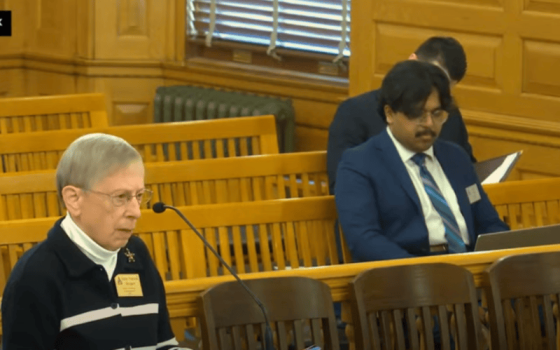MEXICO CITY -- The director of a migrant shelter in northern Mexico has rebuked the federal government for questioning the results of a survey by the National Human Rights Commission, which reported more than 10,000 undocumented migrants were kidnapped over a six-month period of 2010.
"The government is completely wrong," said Father Pedro Pantoja, director of the Belen migrant shelter in Saltillo. "They're debunking the fact kidnappings happen, saying that it's insignificant, that the number is low. There's an intention of diminishing the facts."
The survey, released Jan. 6, reported at least 215 mass abductions of migrants heading north to the United States between April and September with an average of at least 50 victims being kidnapped each time by groups linked to organized crime. Commission ombudsman Raul Placencia told reporters that local police and officials from the National Immigration Institute assisted the "well-organized groups" in some of the abductions, which usually required migrants to call relatives for ransoms.
"These are not individual kidnappings, rather massive events, where the criminals capture up to 100 or 150 migrants and later take them to a point where they are victims of extortion," Placencia said.
The federal government immediately objected to the findings. Alejandro Poire, technical secretary of the National Security Council, said the findings failed to square with government statistics. He also questioned the methodology, which he said could not be replicated.
Poire later clarified that the federal government only questioned the methodology of surveying migrants -- not the existence of kidnappings.
"The federal government reiterates its absolute condemnation of any violation that infringes on the human rights of migrants," Poire said.
The commission defended its methodology, explaining that it carried out 2,500 visits to migration stations, migrant shelters -- some run by Catholics -- and places migrants are known to congregate, such as rail yards.
Father Pantoja said the reaction reflected the federal government's failure to take the abduction problem seriously, even though the Interior Ministry has launched campaigns to encourage migrants to denounce crimes.
"It's only a show," Father Pantoja said of the campaign.
The survey underscored the continuing problem of undocumented migrants being preyed up on by criminal groups as they transit Mexico. In 2009, the human rights commission found a similar number of abductions, but without the phenomenon of mass abductions.
Most of the 2010 abductions occurred in southern and eastern Mexico, the human rights commission reported, especially in the states of Chiapas, Tabasco, Oaxaca, Veracruz, San Luis Potosi, Coahuila and Tamaulipas, where an August massacre claimed the lives of 72 migrants.
Los Zetas, the former elite soldiers turned cartel toughs, were blamed for the massacre and maintain a strong presence in the states mentioned by the commission. Church officials cite their own issues with Los Zetas and criminal groups.
Father Pantoja said criminals broke into the Saltillo migrant shelter in December and stole computers and case files. He suspected organized crime was responsible, as few items with a high commercial value were stolen.
"It was a strategic robbery," he said.
In Oaxaca, Father Jose Alejandro Solalinde, director of the Brothers of the Road shelter, has reported Los Zetas threatened him with death for his work. He said he advises migrants of the kidnapping risks.
Father Solalinde also said some state governments, such as those in Oaxaca and Chiapas, finally have taken steps to better protect migrants.
Oaxaca Gov. Gabino Cue Monteagudo announced in January the establishment of centers providing medical and psychological help, along with human rights advice, for migrants passing through the state.
The priest was less complimentary of the federal government.
"States like Oaxaca and Chiapas have done their part, but the (federal government) ... where is the Public Security Secretariat?" Father Solalinde told El Universal TV. "There have been kidnappings for years and nothing's been done."




